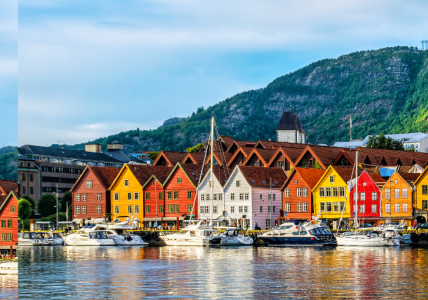COBEN empowered communities to embrace the green transition, driving local energy projects and inspiring new policies across the North Sea Region. I spoke with the project leader Antonia Krebs to understand what was behind COBEN’s success.
The energy shortages caused by the war in Ukraine have made the need for Europe to speed up its green energy transition even more urgent. There is a clear need for more robust and sustainable energy supplies for the sake of both the climate and energy security.
Fast-tracking the green transition seems like an obvious way to go. And according to Antonia Krebs, researcher at the University of Oldenburg and leader of the COBEN project, one strong driving force remains largely untapped: People.
“Right now, civic energy is still a niche player, but it can play a much bigger part,” she says. According to one estimate, half of the European population could produce half of the energy consumed in Europe by 2050.
The COBEN partners put together a solid approach to supporting civic energy schemes and went on to test it across six pilot areas. The results are compelling.

A just transition means local inclusion
“If communities are not included in the transition – and this is what we have seen so far – the energy transition will be slow," states Krebs.
"People have no motivation for it. If a big government or company comes along saying, ‘OK, we’re going to build a wind farm here’, then the local citizens are left to suffer the consequences without gaining anything from it. And that’s not fair."
On the other hand, she says, if citizens in the local community are a real part of decisionmaking and benefit from local green energy production, they are much more likely to embrace the green transition.
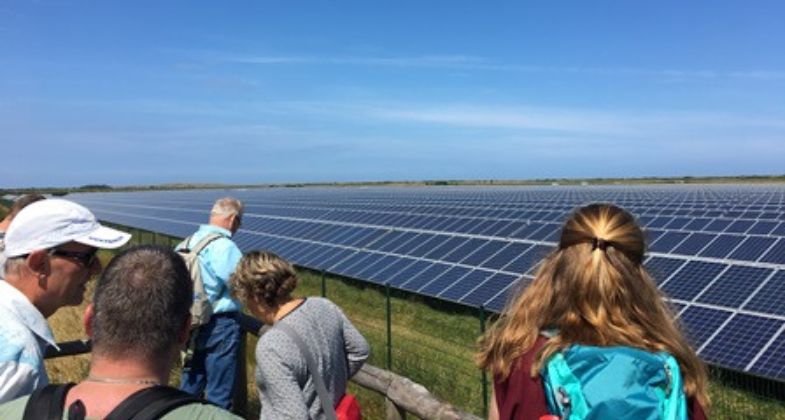
From the pilot in Emmen. Local communities are more likely to embrace the green transition when they have a say and get the chance to share in the profit from green energy production. Photo: COBEN.
How to promote civic energy
Driving green energy projects takes capacity and resources. As a basis for their work, the COBEN partners therefore created the Civic Energy Cycle, a step-by-step model of how to support communities to engage and benefit from green energy production in their local area.
The Civic Energy Cycle is presented in this academic paper.
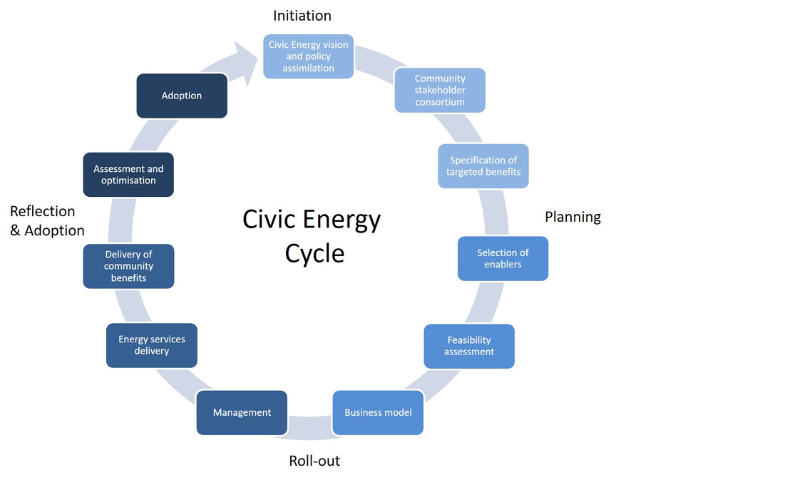
Flanders: Communities on board
The Province of East Flanders (POVL) tested new civic entrepreneurship methods through pilots on wind parks and district heat networks.
In Eeklo, a new wind landscape was inaugurated, following a process of strong public engagement. In total, 32 wind turbines were set up with 35% citizen involvement. Part of the revenues from the energy production is channelled back to and managed by the local community.
"This created resonance in other communities as well," says Krebs. "The success inspired the provincial council to adopt a policy requiring minimum 20% civic participation in green energy projects - and the strategy is already applied to four new wind clusters!"

The wind landscape was inaugurated in festive style, with the local people cycling between the wind turbines and celebrating the entire day.
Thanks to COBEN, heat mapping has also become more common in the province. “Now almost all of the 60 communities are preparing a green heat map, anchored in their local climate action plan,” explains Antonia Krebs.
In Zelzate, COBEN helped prepare the ground for a future district heat network by reaching out to over 85,000 local residents.
The steel company Arcelor Mittal is exploring the possibilities of disconnecting waste heat from the company to the surrounding area. The local government of Zelzate would like to take advantage of this opportunity through a local heat network. Thanks to the support of COBEN, Zelzate has a clearer vision on how a heatnet on its territory can be developed.

On 8 September 2021 the COBEN team, invited by the partner Veolia, were able to celebrate the inauguration of the Eeklo Heat Network together with the Flemish Minister of Energy, Zuhal Demir. Photo: COBEN.
Emmen: A frontrunner for civic energy
“Based on their work in COBEN, the Municipality of Emmen has become the frontrunner for civic energy in the Netherlands,” states Krebs.
The municipality set up Locally Generated Emmen as a support framework for local energy communities that has since become permanent. Focusing on community benefits from large-scale solar power plants, Emmen developed new spatial policies to claim space for cooperative solar parks.
A national climate agreement, adopted in 2020, stipulates that renewable energy projects should strive for 50% local ownership. Emmen provides a rare and useful example of how this can be achieved.
The work done in Emmen is now included in the Regional Energy Strategy of the Province of Drenthe and featured in a fact sheet on local energy ownership, used across the country as part of a national programme. It also inspired the participation plan for the A37 solar route. Eight local energy groups from three municipalities set up an umbrella organisation of local cooperatives for the purpose.
Norway: Farmers join forces
In Norway, the County Council of Viken worked with farmers, innovative SMEs and other local actors to promote climate-smart farming.
Several farmers installed solar barn roofs or started biogas production after taking part in COBEN network activities. A new biogas plant was established by pooling resources from several farmers. The project also piloted climate-smart technology such as a heater-dryer using wood pellets instead of fossil oil and a nitrogen enrichment facility reducing the need for fossil-based fertilisers.
The increased capacity among the farming community came in handy as the European energy landscape shifted almost overnight with the outbreak of the war in Ukraine, says Krebs. “The farmers in Viken had the knowledge to act quickly.”
COBEN’s work influenced local and regional policies as well as Sustainable Energy and Climate Action Plans (SECAPs) in Viken and other parts of Norway.

In Viken, Norway, farmers showed great interest in engaging in climate-smart farming including renewable energy and energy-saving facilities. Photo: COBEN
Denmark: Rural communities drive the green transition
The largest municipality in Denmark, Ringkøbing-Skjern, is dominated by rural areas and smaller towns and villages. Partnering in COBEN, the municipality achieved a range of strong results.
For example, the project carried out more than 1,000 energy checks in private homes and holiday homes while setting up local energy clubs and new citizen-driven electric carsharing schemes.
COBEN also supported a new permanent wind and solar power exhibition for the visitor centre Naturkraft. The exhibition welcomed over 45,000 visitors last year.
“COBEN has helped us in our work towards the municipality’s goals of becoming energy self-sufficient in 2024 and fossil-free in 2040. We are sharing our experiences from COBEN with other municipalities in Denmark and with visitors from the US and other countries.
Sweden: Matchmaking benefits SMEs
In Uppsala, Sweden, COBEN developed a matchmaking platform supporting civic energy projects and local communities by welcoming smaller local players into the energy market.
“They are now planning the energy system for the new city district of Bergsbrünna, with 25,000 households, a train station, a school and an industry area,” explains Krebs. “This project will build on the COBEN insights about civic energy. I find this exciting because it’s almost like a clean slate.”
Germany: Sustainable Heat Networks
COBEN piloted Sustainable Heat Networks in the largely rural Osnabrück region, supporting community-driven renewable energy transition.
The University of Applied Sciences Osnabrück developed the online tool PINA (Planungstool Industrielle Abwärme) for detecting industrial waste heat and matching this information with heat sources in the surrounding areas. The tool combines geodata with data on heat demand and data from industrial companies in the County of Osnabrück.
COBEN gave rise to the research project KoWA, investigating options for heat transition in four areas of Germany.
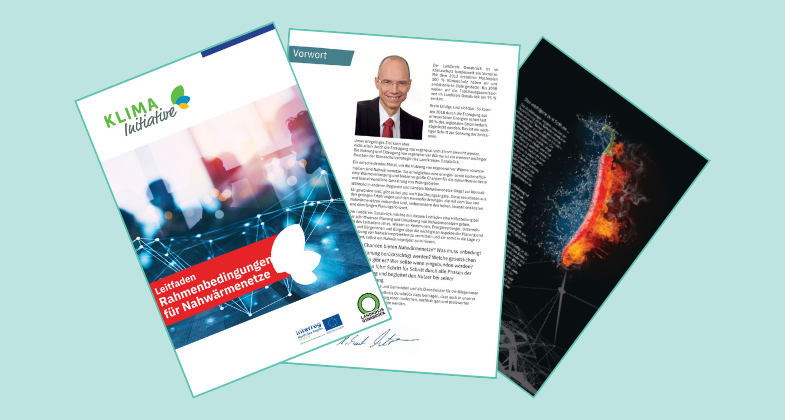
COBEN produced a comprehensive analysis of the potential of district heat networks in Osnabrück.
Scotland: Community-led energy planning
Together with key stakeholders, the Energy Savings Trust Scotland developed four community-led Local Energy Plans as a model for fostering civic energy initiatives. They shared their positive experience in a guide and online toolkit, enabling replication and uptake of the method.

In Scotland, COBEN also engaged with school children. Photo: COBEN
COBEN’s know-how in high demand
Antonia Krebs highlights the cooperation across borders as the driving force of COBEN. The partners jointly developed the Civic Energy Cycle and often worked together on specific tasks. For example, the municipalities of Emmen (the Netherlands) and Ringkjøbing-Skjern (Denmark) cooperated on civic tendering procedures.
“Other consortia have often approached us to tap into COBEN’s experience. Know-how about the softer side of civic energy seems to be in high demand – building community engagement and delivering benefits to the local communities,” she says. A string of new EU-funded projects build on COBEN's work, such as the Interreg Germany-Netherlands project Sereh which includes the COBEN business models.
The project made its mark on policies at local, regional and national levels across the North Sea Region. From spatial policy in Flanders and the Netherlands to SECAPs in Norway and Community-Led Local Energy Plans in Scotland, COBEN has helped strengthen civic participation in green energy schemes.
Moreover, COBEN held numerous events aiming to transfer its solutions. At these events, the partners engaged with policymakers and a host of stakeholders. Also, all pilots achieved firm political support and growing partner networks continue to anchor the COBEN results into wider communities.
The spillover effects of COBEN go even further: “The policy instruments developed in COBEN are now used as an example for any development based on the principle of local ownership,” explains Krebs.
So much of COBEN’s success happened because of the transnational cooperation.
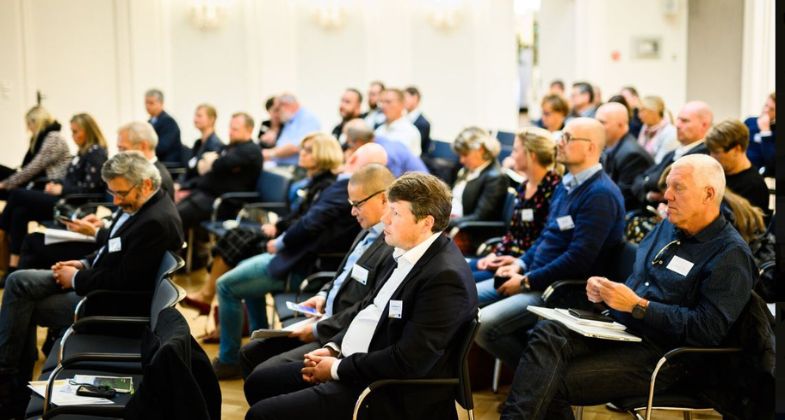
COBEN's Civic Energy Conference centred on the role of civil society participation in implementing the EU Clean Energy Package.
3 tips for promoting civic energy
We asked Antonia Krebs to share her best tips for those who would like to initiate a civic energy project. Her advice is summarised below:
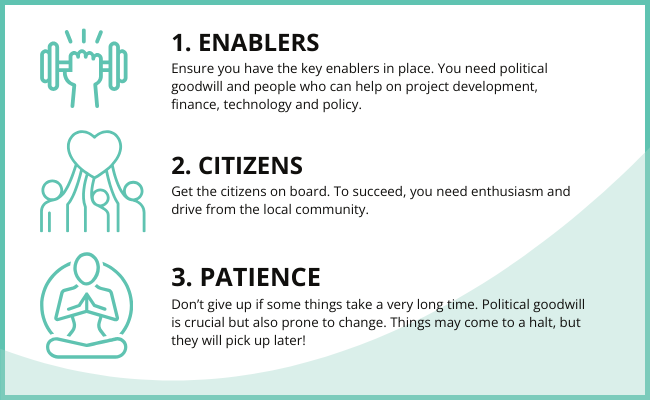
A just transition is feasible
Humanity's fate is hanging in the balance
At the recent COP28 in Dubai, Mr Guterres once again made the precarious state of the Earth’s climate abundantly clear. He urged for more cooperation to avert widespread human misery in the next century.
We clearly need the green transition to turn into overdrive everywhere, and in a way that is fair and just. Antonia Krebs: “Civic energy can be a big player. The knowledge is there, the will is there, but there are still a lot of barriers. Those barriers must be tackled to create a level playing field.”
The COBEN partners have shown a way forward, together with all the local villagers, farmers, companies, and public authorities who participated. The scene is set to boost civic energy, driving a speedy and just transition and supporting communities to thrive.
It’s simple. If communities benefit from the green transition, it will happen faster and also in a more just way.
Top 3 project highlights
The Civic Energy Cycle
COBEN developed and applied a successful methodology to foster community participation in green energy projects.
Proven benefits
The project showcased community benefits of civic energy. A range of business models were tested and validated in the pilots.
Better policy
COBEN left its mark on national, regional and local policies across the North Sea Region. The project's new policy instruments are useful in any development fostering local ownership.
COBEN key facts
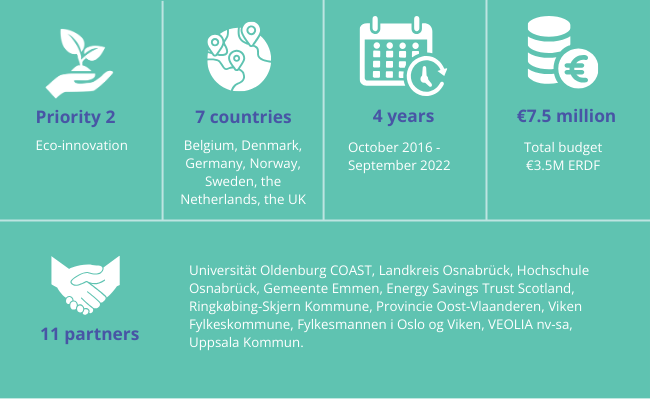
Learn more
To learn much more about COBEN, visit their website.
To learn all about the Civic Energy Cycle, check out the Energy Informer. Capturing the project's work, it offers step-by-step guidance on how to set up community-driven green energy schemes.
Find all COBEN's publications, presentations and materials for download in their library.
Get in touch
Are you curious to know more about COBEN or would like to talk to the people behind the project?
Feel free to get in touch with the project leader Antonia Krebs at email antonia.krebs@uol.de.
About the author
Sofie Forfang is a communications advisor at the Interreg North Sea Joint Secretariat.
Top image: COBEN


